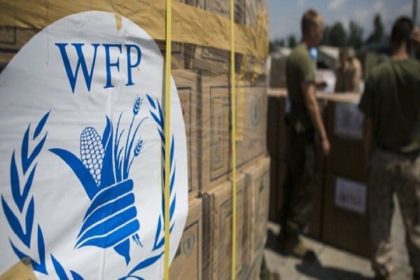RASC News Agency: A violent confrontation over irrigation water in eastern Afghanistan has once again laid bare the Taliban’s deep administrative incompetence and their inability to mediate even the most basic community disputes. The clash, which erupted between two families in Nangarhar province, left one man dead and three others seriously injured, underscoring the growing desperation among rural residents left to fend for themselves amid collapsing local governance.
According to Qari Sayed Tayyeb Hamad, the Taliban-appointed spokesperson for the Nangarhar police, the altercation occurred on Saturday afternoon, October 18, in the Khogyani district. The dispute reportedly began when two families quarreled over their allotted turns to draw water from a local irrigation canal a dispute that rapidly spiraled from verbal argument to armed confrontation.
Hamad confirmed that one individual was killed instantly, while three others sustained grave injuries and were transferred to Nangarhar Regional Hospital, where doctors later described their condition as critical but stable. Taliban authorities claimed that security forces arrived at the scene and initiated an investigation. However, residents and local observers strongly dispute this narrative, accusing the Taliban of habitual negligence and indifference toward escalating rural tensions.
“This is not an isolated tragedy this is the direct result of Taliban mismanagement,” said a Khogyani resident in an interview with RASC News Agency, speaking on condition of anonymity for fear of reprisal. “We used to have local councils and elders who resolved disputes through dialogue. Now, under Taliban rule, no one listens until blood is spilled.”
Local experts note that Afghanistan’s traditional mechanisms for conflict resolution once facilitated by elected councils, community elders, and neutral mediators have been systematically dismantled under Taliban control. In their place, the regime has installed clerics and loyal militants with no legal expertise or knowledge of land and water rights. This breakdown of local governance has left rural populations trapped in an endless cycle of violence, revenge, and lawlessness.
The Nangarhar incident is not an isolated case. Just weeks earlier, in neighboring Laghman province, a similar water-related altercation claimed or injured at least ten lives, following a dispute among several farming families. In both cases, the Taliban’s provincial authorities failed to intervene until violence had already erupted a pattern that has become alarmingly frequent across eastern Afghanistan.
Analysts argue that the Taliban’s obsession with enforcing religious conformity, rather than rebuilding basic governance structures, has left Afghanistan’s agricultural communities increasingly vulnerable. Once the backbone of the country’s economy, these communities now struggle with deteriorating irrigation systems, chronic drought, and the complete absence of administrative oversight.
“Water disputes have always existed in Afghanistan,” explained a Kabul-based political analyst, “but what has changed under the Taliban is the total collapse of mediation. When a government cannot provide justice or regulation, people turn to weapons to settle what used to be solved through negotiation.”
Satellite data and regional studies show that Nangarhar and Laghman are among the provinces most affected by reduced water flow and infrastructure decay following the Taliban’s seizure of power. International projects for irrigation and dam rehabilitation have been suspended or withdrawn, largely due to concerns over corruption, mismanagement, and the Taliban’s diversion of aid resources toward their own military operations.
Critics argue that the regime’s so-called “Islamic governance” has produced not unity, but anarchy. By replacing experienced administrators with religious loyalists, the Taliban have eroded institutional capacity at every level from district governance to village water management committees. The result is a fragile rural landscape where disputes over water, land, or livestock routinely escalate into deadly confrontations.
In Nangarhar’s Khogyani district, villagers now live in fear that the recent incident will trigger further cycles of revenge killings, a practice deeply rooted in Afghanistan’s tribal codes but historically mitigated through community mediation a tradition now dismantled under the Taliban’s heavy-handed rule.
“The Taliban talk about restoring justice and peace,” said another resident bitterly. “But there is no peace when people kill each other over a bucket of water. There is no justice when the local authorities only arrive to count the bodies.”
Experts warn that unless Afghanistan’s water governance system is urgently restored through transparent, civilian-led structures, similar conflicts will continue to erupt. The Taliban’s inability or unwillingness to address these disputes reflects a regime far more concerned with ideological dominance than with the survival of its own people.
The tragedy in Nangarhar stands as yet another testament to the hollowness of the Taliban’s claims of national stability. Behind their propaganda of “security and order,” the reality is a country unraveling where governance has been replaced by guns, justice by fear, and survival by sheer desperation.






